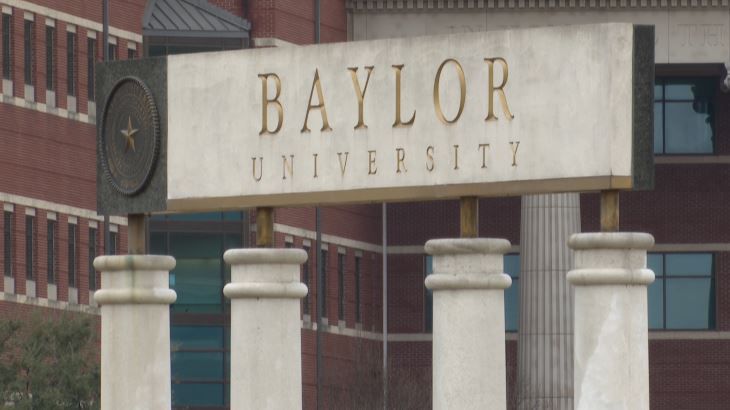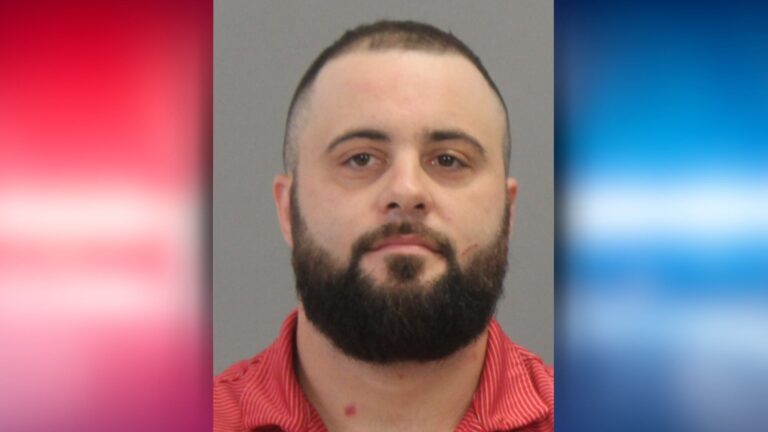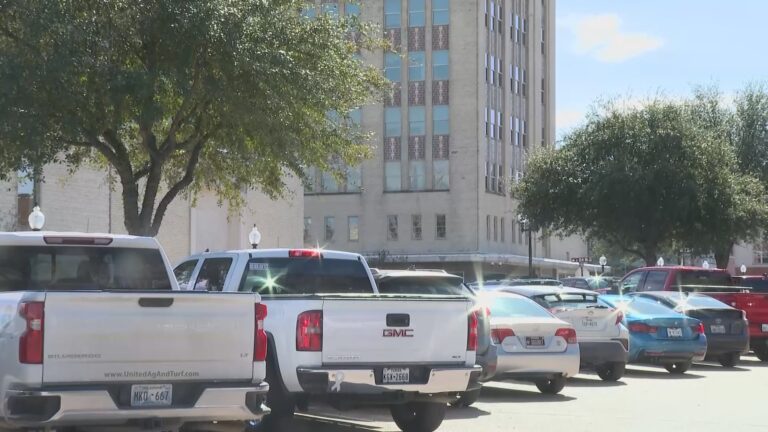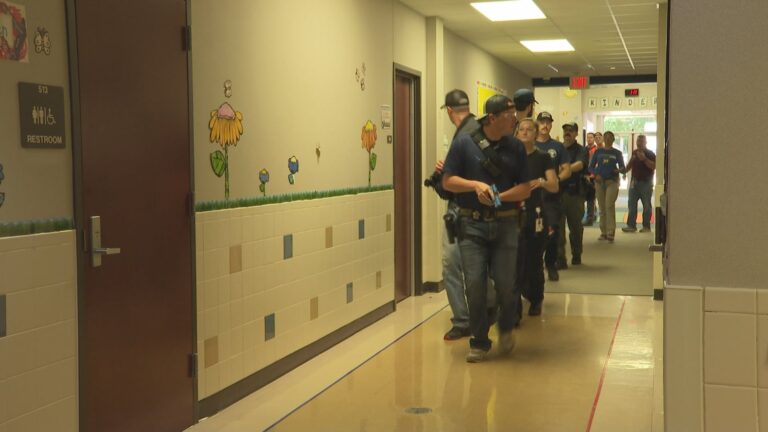Baylor settles Title IX lawsuits with 15 sexual assault victims
WACO, Texas (KWTX) – Fifteen women who reported they were sexually assaulted while students at Baylor University have settled their federal lawsuits against the university, culminating a protracted scandal that tarnished the Baptist school’s image and led to the ousters of its disgraced head football coach and prominent president.
Some of the lawsuits from Jane Does 1-15, as they are called in the lawsuits, have been pending seven years while Baylor officials and the women’s lawyers waged prolonged, acrimonious battles over disclosure of school records, including reports from the independent Pepper Hamilton investigation.
While mediation efforts are confidential, Dallas attorney John DeGroote filed documents with U.S. District Judge Robert Pitman’s court in Austin on Monday indicating the latest mediation efforts on Friday were successful. A previous mediation attempt on May 8 was unsuccessful, but DeGroote’s court filing indicated then that the parties were going to continue to try to reach a resolution through mediation.
The women’s attorneys, Jim Dunnam and Eleeza Johnson, both of Waco, and Chad Dunn, of Austin, and Baylor officials said Monday that the terms of the settlements were confidential and would not be disclosed.
Baylor spokeswoman Lori Fogleman said in a statement Monday that Baylor is “deeply sorry” for anyone connected with the Baylor community who has been harmed by sexual violence.
“While we can never erase the reprehensible acts of the past, we pray that this agreement will allow these 15 survivors to move forward in a supportive manner,” the statement said.
Dunnam said he and Dunn are proud of their clients “standing firm against Baylor’s seven-year effort to obstruct and conceal the truth.”
“Most people don’t know that dozens of legal opinions issued in this case are now part of Title IX training of faculty, students and university administrators across the country,” Dunnam said in a statement. “Judge Pitman’s rulings against Baylor are now cited repeatedly and routinely in Title IX litigation throughout the United States, allowing others to stand on the shoulders of these strong and pioneering women. Their bravery and strength has created legal precedents that empower others to gain relief from the injuries inflicted by their universities, while also securing safer education environments for future generations.
“Baylor’s focus of media attention on football tried to misdirect attention from institutional failures of the Baylor administration. Our clients would have none of that. Their determination brought the focus on officials in the ivory tower and ‘the Baylor way.’ After seven long years of struggle, our clients can move on with their own lives, knowing that they have achieved their highest goals – making Baylor and other institutions of high learning safer places for female students.
Baylor, which spent millions of dollars during the lengthy discovery process, fought mightily to keep from turning over certain documents, especially ones from the investigation conducted in the wake of the sexual assault scandal by the Pepper Hamilton law firm. That estimate does not include any settlements to the plaintiffs.
Pitman, former U.S. Magistrate Andrew Austin and Andrew MacRae, appointed special master by Pitman to oversee the discovery disputes, were openly critical of how Baylor handled discover issues, chiding Baylor for dragging its feet, failing to comply with or feigning misunderstanding of court orders and unnecessarily prolonging the litigation.
Austin, who is retired, wrote in orders that Baylor, while arguing the documents should not be disclosed because of confidentiality concerns, work-product or attorney-client privilege, “has been as aggressive as any party the Court has encountered.”
Baylor officials have said the university has made “sweeping changes and significant progress” under new university leadership, including implementing 105 recommendations from the Pepper Hamilton investigation, improvements in “infrastructure, training, education and policies and procedures in response to past sexual and interpersonal violence involving our campus community.”
“Baylor’s unwavering commitment is to our students – to continue to educate, train and respond appropriately and work continuously to ensure a safe, supportive and healthy campus for all students,” Baylor officials said in a statement last year.
Baylor sought dismissal of the lawsuits by arguing the sexual assaults were outside its control, that its investigations were not “clearly unreasonable” and that Baylor’s written policy prohibiting sex discrimination protects the university from certain claims under Title IX.
Former head football coach Art Briles was fired and former Baylor President Kenneth Starr was removed from office in the wake of the sexual assault scandal that rocked the school. Briles, seven years later, continues to be ostracized. He sparked a controversy Sept. 9 after he was seen dressed in Oklahoma University colors on the field with his family following OU’s 28-11 win over SMU. Briles’ son-in-law, Jeff Lebby, is OU’s offensive coordinator, and he later apologized for the “distraction.”
Several of the sexual assault allegations involved members of the Baylor football team and a fraternity president. Baylor settled a Title IX lawsuit in 2018 brought by a former volleyball player who alleged she was drugged and gang raped by at least four football players.
Baylor previously settled four other Title IX lawsuits and reached confidential settlements with at least three other women who alleged they were sexually assaulted but did not file lawsuits.
Pitman allowed the 15 plaintiffs to amend their filings in April to include state fraud, breach of contract, negligence and gross negligence allegations. The judge asked Baylor to reconsider its objection to the petition amendments “given that Plaintiffs seek to amend their complaint in response to an intervening change in law and not due to any delay on Plaintiffs’ part.”
“Additionally, Baylor cannot claim prejudice in good faith,” Pitman wrote. “Although this litigation has been pending far too long, the delays are largely due to Baylor’s discovery conduct, and yet the cases are still not on the eve of trial.”
The plaintiffs claimed that Baylor did nothing or almost nothing when they sought assistance and protection from Baylor after the sexual assaults. They alleged that Baylor’s failure to promptly and appropriately investigate and respond to student sexual assaults substantially increased the risk for them and all female Baylor students to be sexually assaulted.
They also alleged under Title IX that Baylor’s policies and selective conduct code enforcement created a discriminatory environment for female students and fostered sexual harassment and sexual assault. Title IX provides that no person, on the basis of sex, be excluded from participation in, be denied the benefits of, or be subjected to discrimination under any education program or activity receiving federal funding.







